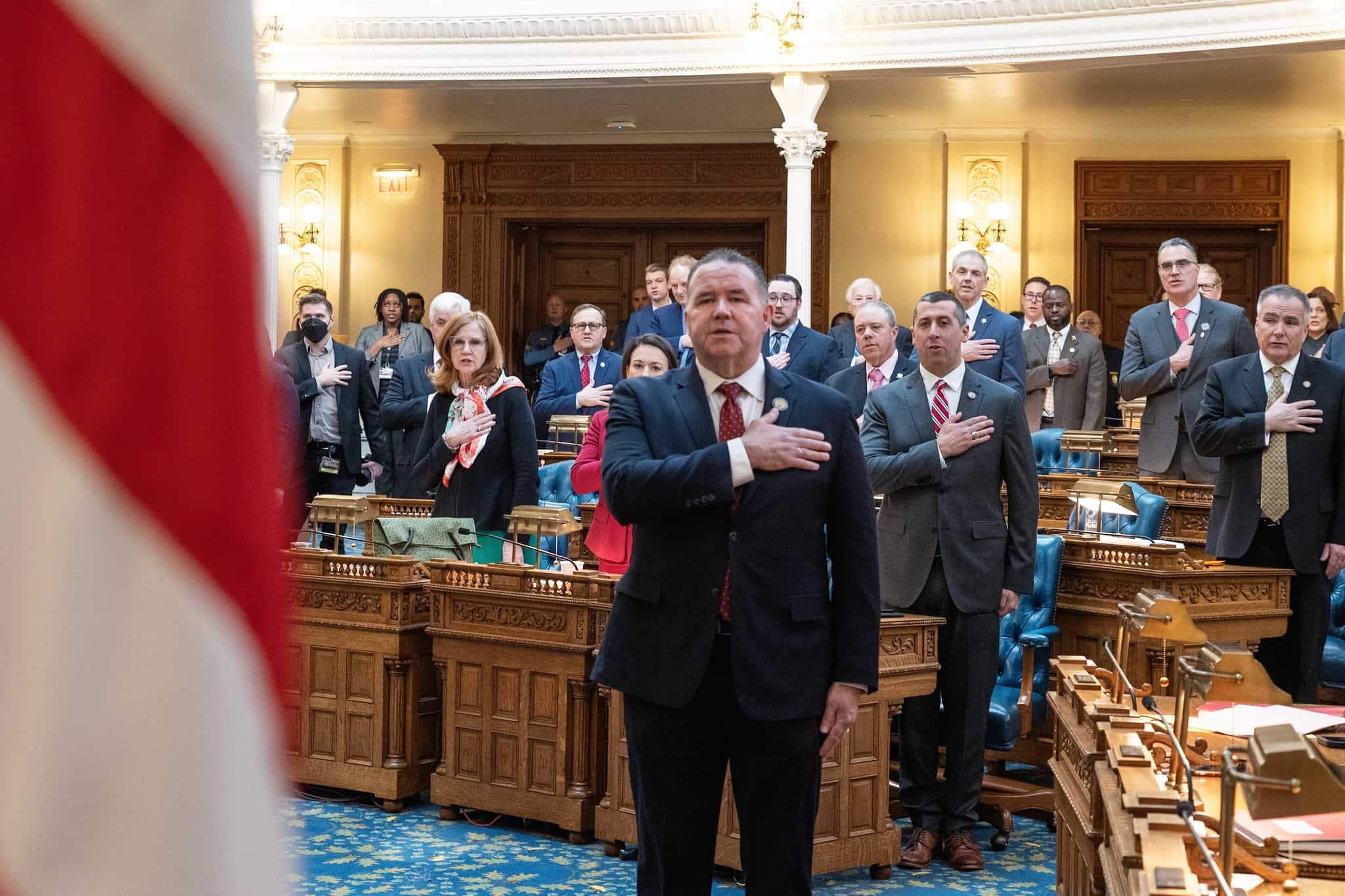“New Jersey residents need immediate fixes to lower the costs of their utility bills. They cannot wait for the Murphy administration’s unreliable alternative energy solutions to materialize or for new power plants to come online. Bills are already sky high, and increased rates set to take effect this summer are predicted to come with very serious health consequences,” Sauickie (R-Ocean) said.
New Jersey Rate Counsel Brian Lipman warned lawmakers at the energy hearing in March that heat-related deaths will increase as costs to run air conditioning become more unaffordable. The Board of Public Utilities certified the results of an electricity auction earlier this year, which will raise electricity bills by about $25 a month starting June 1 depending on how much a customer uses and the utility company.
“The legislative solutions I am presenting will save ratepayers money now and in the future,” said Sauickie. “I am hopeful that my colleagues on both sides of the aisle will agree to support these bills, because for some customers, it is literally a matter of life and death. We don’t have time for partisan politics.”
The first measure (A4788) would lower rates year-round by eliminating the sales tax the state tacks onto utility bills.
Two other bills address conservation costs passed onto consumers that either incentivize energy saving efforts or recoup lost revenue due to those efforts. Sauickie is drafting a bill based on a recommendation from a Board of Public Utilities report by the Brattle Group, a consulting firm that studies energy and economic policy. The bill would repeal an outdated pricing system called the inclining block rate, which charges more per unit of electricity as usage goes up, encouraging customers to use less energy. The other bill (A5114) would repeal the energy conservation penalty that allows utility companies to increase rates on customers to make up for lost sales.
“The government shouldn’t be making money on the energy people use to heat and cool their homes, and keep the lights on and food on their tables. These are basic human needs, not an opportunity for a money grab,” Sauickie added. “Unfortunately, those who do their best to save energy get hit anyway, because of increasing rates. My legislation attacks unfair charges on customers’ bills.”
The fourth measure the lawmaker is drafting empowers consumers to find cheaper utility rates by requiring the BPU to provide up-to-date information on third-party energy providers in the state. Since 1999, New Jersey has separated the supply portion of the electric or natural gas rate from the delivery portion, allowing customers to use a third-party supplier licensed by the BPU. The state webpage dedicated to third-party suppliers was last updated nearly two years ago.
Finally, Sauickie wants to mandate the BPU to fully review transmission projects (A5058). According to ratepayer advocates, local transmission projects receive little regulatory oversight. Last year, the Federal Energy Regulatory Commission found Public Service Electric and Gas provided inaccurate information about a $546 million transmission project, and ordered the company to pay a $6.6 million fine. The federal ruling did not prevent the company from relying on ratepayers to recover the increased expense.
“I am calling on the BPU and rate counsel to do more to ensure that utility customers can get better supply rates and aren’t footing unreasonable portions of transmission projects that have been found to be necessary for reliable service,” Sauickie said. “New Jersey ratepayers deserve a government that protects them from increasing costs instead of one that chases a costly agenda and doesn’t value a diversified energy portfolio. It’s time we put people before politics so we can lower utility bills before summer.”
